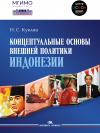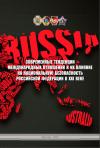Президент РСМД И. Иванов выступил перед голландскими парламентариями
Вход
Авторизуйтесь, если вы уже зарегистрированы
(Нет голосов) |
(0 голосов) |
16 мая 2012 г. Президент Российского совета по международным делам И. Иванов выступил в Гааге на симпозиуме «Реальность европейской безопасности», организованном Сенатом Королевства Нидерландов.
Текст выступления.
16 мая 2012 г. Президент Российского совета по международным делам И. Иванов выступил в Гааге на симпозиуме «Реальность европейской безопасности», организованном Сенатом Королевства Нидерландов.
Заседание открыли Президент Сената Ф. де Грааф и Председатель Постоянного комитета по международным отношениям, обороне и сотрудничеству в области развития Сената Ф. ван Каппен. Свои доклады представили Советник Президента Международного института стратегических исследований Ф. Хейсбург, шеф-корреспондент группы Welt М. Штюрмер и эксперт по анализу стратегических проблем Центра стратегических исследований в Гааге Р. Кортевег.
В ходе дискуссии участники симпозиума обсудили современное состояние европейской безопасности, перспективы формирования общеевропейской политики в области защиты и обороны, будущее трансатлантической системы безопасности, о которой, в частности, говорил в своем докладе Игорь Иванов.
Выступление И. Иванова на симпозиуме в Сенате Нидерландов, посвященном европейской безопасности:
Mr. President, distinguished colleagues, friends,
First of all, let me say that I am honored and pleased for having an opportunity to speak in front of this distinguished audience. Russian – Dutch relations have a long and remarkable history, which goes back into Middle Ages.
However, in my brief presentation I will talk not about our bilateral relations, but rather about more general matters of the Euro Atlantic security – these matters affect both our countries and constitute an important part of our respective political agendas.
Let me make myself clear from the very beginning. In the modern world the notion of Euro-Atlantic security cannot be limited to the relations between the United States and its European partners, as it was the case during the Cold War. The Euro-Atlantic security today should embrace the entire European continent, US, Canada, and, by all means, Russia. Without taking into account Russia’s legitimate interests, without its most active engagement it would be hard to discuss a truly efficient architecture of the Euro-Atlantic security, an architecture capable of meeting contemporary challenges and threats.
One should also keep in mind that the modern security in general and the Euro-Atlantic security in particular are no longer limited to only the military dimension. For providing security to states and societies today such factors as economic development, social wellbeing, civil society dynamics are no less important.
Proceeding from these assumptions, let me put the following question: are we happy with the current state of the Euro Atlantic security? Is it something that we would like to preserve in future? Will all of us be proud to pass the current state of affairs to our children and grandchildren? My answer to all these questions is definite “No”. The current state of affairs does not meet the modern realities and has to be changed.
The reality is that today, more than twenty years after the end of the Cold War, we do not have an integrated Euro Atlantic security system. We still have the West and the East; the borderline between the two has moved eastward, but has not disappeared. True, we do not have an Iron Curtain any longer. Our citizens travel all over Europe, Internet reaches out to remote corners of our continent. And, even more importantly, there are no ideological contradictions that could explain and justify a protracted political conflict. But mistrust and mutual suspicions are still with us; our attempts to create a common Euro Atlantic security space have failed in the most spectacular and unambiguous way.
There might be different views on why it happened and who is to take responsibility for this failure. However, the fact of life is that nobody in the West or in the East took this task in a serious way. We never really learned the lessons of 9/11. Neither had we made proper conclusions from subsequent terrorist attacks in Spain and in the United Kingdom. The United States continued to pursue its unilateral world domination strategy having missed a chance to lead the international community to a new world order. Russia initially fought for its mere survival and later on enjoyed an unprecedented energy based wealth. Europe was too busy managing its geographical expansion and then had to confront a chain of constitutional, political and economic difficulties. In sum, everyone was busy minding his own business, and the concept of the Euro-Atlantic security system remained a pipe-dream of few idealists.
The paradox of the Euro Atlantic security today is that unlike in the past, we do not have any significant disputes in how we define security challenges and needs. We can disagree on specific questions, on how particular institutions should work or what issues should get our immediate attention. But when you talk to responsible politicians in Moscow or in Washington, in Brussels or in Berlin, in The Hague or in London, you are likely to get mostly the same assessments and the same conclusions on the majority of security matters. However, the common Euro-Atlantic security system remains probably as far away from us as it was in late 1980s.
In fact, the Euro-Atlantic security agenda has two, distinctly different sets of problems. On the one hand, we have the “unfinished business” of the Cold War. The old notions of the XX century – deterrence, balance of powers, mutual assured destruction, verification procedures – are still with us. Many of the conflict situations in various corners of the European continent, territorial disputes can be traced back to the Cold War era or even to older times.
On the other hand, we have new challenges to the Euro-Atlantic security that became particularly visible only recently – energy security, migrations, international terrorism, communications security and so on. The Euro-Atlantic zone is by no means immune to numerous destabilization impulses coming from other regions of the world.
Some analysts and politicians would say: let us forget about the “old” security agenda – it is mostly irrelevant and immaterial in the modern world; we should concentrate on the “new” agenda, which directly affects day to day lives of everybody in the Euro-Atlantic zone. But the reality is that the “unfinished business” of the Cold War seriously diminishes our abilities to deal with the “new” agenda. If we have no trust between us, if we still stick to the dogmas of the XX century, how can we find solutions to much more comprehensive and sensitive problems of today and tomorrow? We cannot simply bypass old problems - we need to resolve them – once and forever.
What should we do now to make a difference? There are many ideas floating around; over last twenty years a lot of ambitious plans on Euro-Atlantic security have been brought to the table. Frankly speaking, I am not too optimistic about any “magic solution” that could take care of our problems with one strike. There is no ‘institutional deficit’ in the Euro-Atlantic zone; we already have plenty of organizations (OSCE, NATO, CIS, Council of Europe, etc.) around. Likewise, I am not sure that we really need new security agreements to cover all the security problems of the region. In fact, there are many agreements signed already; the question is about their proper implementation.
In 2009 the unique process was created, called the Euro-Atlantic Security Initiative (EASI). This project brought together former policymakers, diplomats, generals, and business leaders from Russia, North America, and Europe to look at options to address the region’s faltering security system and to chart a roadmap of practical actions that would lead to a more secure future.
As a result of our discussions and study, we concluded that the only means to assure the long-term security of our peoples lies in building an inclusive, undivided, functioning Euro-Atlantic Security Community – a community without barriers, in which all would expect resolution of disputes exclusively by diplomatic, legal, or other nonviolent means, without recourse to military force or the threat of its use. Governments within this community would share a common strategy and understanding in the face of common threats and a commitment to the proposition that the best and most efficient way to tackle threats, both internal and external, is through cooperation. We believe, in short, that our security problems can only be solved by working together and that we can no longer afford the divisions of the past that stand in the way of that cooperation.
That target is ambitious and will be the work of decades. But unless we begin to move in this direction now, the risk that the Euro-Atlantic community may retreat to old patterns of suspicion, confrontation, and distrust, is all too real.
Maybe, the time has come to think about very specific, incremental steps that can help us to deal with limited, but not unimportant areas of the Euro-Atlantic security. I would like to emphasize the significance of promoting security regimes in Europe. These regimes might cover various security dimensions – like cyber security, or drugs traffic, or migrations, or energy. They can also focus on sub regional problems (The Arctic, the Black sea zone, the Balkans). We will be able to take one issue after another, or to handle them in a parallel way.
The advantages of the regime approach, in my view, are evident. First of all, regimes are more flexible than institutions; we do not need to negotiate very complex and ambiguous decision making processes and feed multiple layers of bureaucracies. Second, regimes are more democratic – they can embrace any party, which is interested in joining the regime (maybe, in certain cases we can even accept non-state participants). Third, regimes can first be launched where the conditions are ripe and the cooperation is already on; we can reach out for low hanging fruits and later on build on our initial success.
That steps will foster cooperation on practical tasks, initiate new patterns of action, and open a process in which key parties work together. They in turn must be guided by ambitious goals. Two are particularly important:
- To transform and demilitarize strategic relations between the United States/NATO and Russia;
- To achieve historical reconciliation where old and present enmities (for example, between Russia and its neighbors, Turkey and Armenia, Moldova and Transnistria, and the communities in Cyprus) prevent normal relations and cooperation.
This is something that can be applied to our current debates about the missile defense.
To bury lingering Cold War attitudes once and for all and become genuine strategic partners, NATO and Russia must learn to cooperate at the strategic level. Despite the current diplomatic impasse, cooperative missile defense offers an avenue to the larger goal of transforming the very nature of security relations between the Russian Federation and the United States/NATO. In other words, it can be a game changer.
U.S.-NATO-Russia missile defense cooperation is not only insurance against a potential intrinsic threat but also a critical component in building a larger security community, and it must not be allowed to fade from the very center of the security agenda.
In turn, failure to achieve a cooperative approach to missile defense risks being a “game spoiler”, with deeply damaging effects not only on the prospects of moving toward a more inclusive Euro-Atlantic Security Community but also on the future of security cooperation in general and U.S.-Russian relations in particular. The consequences of failure are predictable.
Of course, it would be great to have an integrated all-European or even a global system protecting all of us. But if it is not yet feasible, why not trying something more modest, but still meaningful? Instead of proclaiming a new crisis in the relations between Russia and the West, we could start working on very concrete matters without giving up our principal positions. It may be pooling and sharing information and data from satellites and radars operating in real time to provide a common notification of missile attack; resumption of joint command-staff exercises on ballistic missile defense; continuation of threat discussions, and so on. Maybe, these forms of cooperation look trivial and not imaginative, but this is exactly what creates trust, eradicates mutual suspicions and ultimately paves the way for more ambitious and far reaching agreements.
Given the very recent political developments in major European countries including Russia many would ask questions about how we maintain consistency in our efforts to promote the Euro-Atlantic security. Indeed, political leaders all over our continent might be distracted by pressing domestic issues and might find it increasingly difficult to focus on the foreign policy agenda. However, in the contemporary interdependent world you cannot draw a line between domestic and international agendas. For Russia stable and cooperative relations with its Western partners have always been a precondition for a successful modernization strategy. We need the West as a critically important source of badly needed technologies, business models and best social practices. And we know quite well that we can make full use of this source only if we resolve remaining security matters with the West.
Therefore, I cannot agree with some predictions that Vladimir Putin’s return to the Kremlin will inevitably mean a new level of tensions between Russia and the West. President Putin has demonstrated more than once that he is a realist and he fully understands the pivotal significance of the Euro-Atlantic dimension in the Russian foreign policy. He will firmly defend Russian interests and he is not likely to hide his critical views of the Western policies, if he disagrees with them. But he is definitely not in the business of starting a new Cold War. We can only hope that this realism and pragmatism will be shared by our Western partners – no matter who is in charge of international affairs in Brussels, in Paris, in The Hague or in Washington, DC.
(Нет голосов) |
(0 голосов) |




